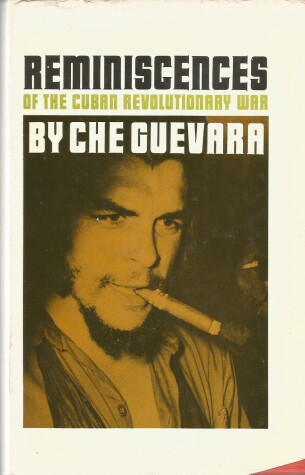Pelican S.
2 total works
Che Guevara, the larger-than-life hero of the 1959 revolutionary victory that overturned the Cuban dictatorship, believed that revolution would also topple the imperialist governments in Latin America. Che's call to action, his proclamation of "invincibility"-the ultimate victory of revolutionary forces-continues to influence the course of Latin American history and international relations. His amazing life story has lifted him to almost legendary status. This edition of Che's classic work Guerrilla Warfare contains the text of his book, as well as two later essays titled "Guerrilla Warfare: A Method" and "Message to the Tricontinental." A detailed introduction by Brian Loveman and Thomas M. Davies, Jr., examines Guevara's text, his life and political impact, the situation in Latin America, and the United States' response to Che and to events in Latin America. Loveman and Davies also provide in-depth case studies that apply Che's theories on revolution to political situations in seven Latin American countries from the 1960s to the present. Also included are political chronologies of each country discussed in the case studies and a postscript tying the analyses together.
This book will help students gain a better understanding of Che's theoretical contribution to revolutionary literature and the inspiration that his life and Guerrilla Warfare have provided to revolutionaries since the 1960s. This volume is an invaluable addition to courses in Latin American studies and political science.
This book will help students gain a better understanding of Che's theoretical contribution to revolutionary literature and the inspiration that his life and Guerrilla Warfare have provided to revolutionaries since the 1960s. This volume is an invaluable addition to courses in Latin American studies and political science.
Within a year after the triumphal entry into Havana at the beginning of 1959, Che Guevara began to set down the history of the guerrilla war. Fearful that the events would "dissolve into the past" and that an important part of the history of America would be lost, he urged other leaders of the Revolution to do the same, asking only "that the narrator be strictly truthful." His history of the war appeared episodically during the next few years in various Cuban periodicals such as Verde Olivo and Bohemia. In 1963, the Havana publishing house Ediciones Union collected nineteen episodes under the title Pasajes de la Guerra Revolucionaria. This volume, originally published in 1968, contains diagrams of several battles, photographs, and maps of the guerrilla itinerary in the Sierra Maestra. The introduction by Fidel Castro consists of the text of his speech in memory of Guevara at the Plaza de la Revolucion in 1967. "He wrote with the virtuosity of a master of our language," said Castro. "His narratives of the war are incomparable. The depth of his thinking is impressive.
He never wrote about anything with less than extraordinary seriousness, with less than extraordinary profundity-and we have no doubt that some of his writings will pass on to posterity as classic documents of revolutionary thought."
He never wrote about anything with less than extraordinary seriousness, with less than extraordinary profundity-and we have no doubt that some of his writings will pass on to posterity as classic documents of revolutionary thought."

